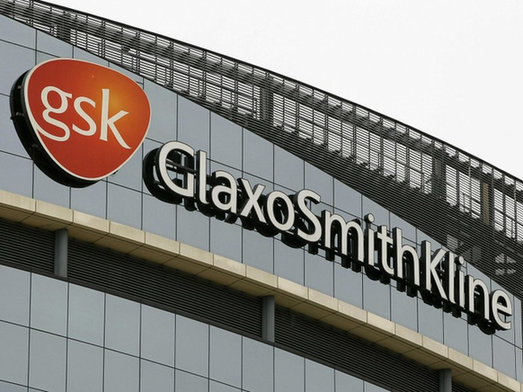GSK's bitter pill could be best medicine for all
- By Gabrielle Pickard
 0 Comment(s)
0 Comment(s) Print
Print E-mail China.org.cn, August 3, 2013
E-mail China.org.cn, August 3, 2013
This month China accused GlaxoSmithKline (GSK) of bribing doctors and officials to sell the company's drugs at higher prices. The Chinese authorities arrested four Chinese GKS executives accused of channelling three billion yuan to travel agencies to assist bribes to doctors. The aim of the bribes was to boost sales and increase the price of GSK drugs. The London-based multinational drugmaker apologised, claiming that it appears a small group of unruly managers were at fault rather than company policy.
|
|
|
British drugmaker GlaxoSmithKline [File photo] |
A story about one of the world's biggest drugs manufacturer's being involved in bribery has naturally created a whirlwind of scandal and debate. Reports have been infiltrating through the worldwide media about whistleblowers, bribery, corruption, China's worsening healthcare system, GSK's position in China and calls for the U.K. drug giant to be charged under the U.K. Bribery Act.
Much of the discussion and debate instigated by the GSK scandal failed to focus on the fundamental issue raised by the story: Why does China pay exaggerated prices for medicines?
In clear reference to the GSK scandal, The People's Daily stated that China must "lift a sharp sword to pierce the improper, even illegal, costs behind rising drug prices."
The scandal included allegations that GSK sales representatives provided doctors with expenses such as vacations, saunas, massages and sessions with prostitutes and recording them as "seminar fees" in the company accounts. At a press conference in London, GSK Chief Executive Andrew Witty said he was informed by Chinese authorities that some senior GSK executives apparently broke the law by working outside the GSK system. Witty articulated confidence in the integrity of 99.99% of the GSK global workforce.
In the wake of the scandal, GlaxoSmithKline has pledged to make its drugs more affordable in China, but healthcare in China faces multiple challenges. Access to and affordability of medicines is especially problematic for China's increasingly aging population and China's rural population does not have easy access to prescribed drugs. I believe that GSK's pledge to make drugs more affordable in China following the scandal is what the nation's healthcare system needed and is therefore a blessing in disguise.
So why does China pay over the odds for its drugs?
The crux of the answer to this question lies within the fact that China spends a lot more than other countries on medicines. Whilst most countries in the West spend approximately 10 - 12 percent of their total healthcare budget on pharmaceutical drugs, China spends more than 40 percent. The promise made by GSK to make medicines more affordable in China since the scandal broke is an important lever the Chinese authorities may use to redress the disparity of the price of drugs.
There is a high demand for western drugs in China, especially brand-name drugs. Unlike the inferior or even counterfeit drugs sold in China, brand-name medicines from the west offer quality, assurance and peace of mind. As a consequence, they come attached with a hefty price tag.
Reiterating the high demand for drugs in China is Hans Hogerzeil, a former World Health Organization director of medicine policy and current professor of global health.
"In China, a very high proportion of health expenditure is spent on medicines, which reflects both over-consumption and high prices," said Hogerzeil.
While GSK has given no indication how much it will cut drug prices in China, it has been suggested that there is scope for a 30 percent reduction in the price of some drugs, or even more. In addition, if GSK made such significant reductions to the price of its medicines in China, it is likely that other pharmaceutical manufacturers would follow suit.
The high price of Western drugs in China can be likened to the inflated prices of imported formula milk, which can cost up to three times as much as Chinese equivalents. The high price is due to a series of quality scandals which have resulted in the widespread distrust of Chinese formula milk manufacturers.
In response to an investigation into the price of baby milk, Nestle SA announced that it would cut the price of its infant formula in China by an average of 11 percent and it is likely that there will be similar reductions in the price of drugs in the wake of the GSK scandal.
The Chinese government will however have more influence over the price of drugs because of official controls. In recent years Beijing has been able to set price caps and force reductions in the price of medicines.
Given that the Chinese government has had the ability to control the price of drugs; it seems almost ironic that it has taken a scandal involving corruption and bribery within the drugmaking industry to force a reconsideration of, and possible reduction in the overinflated prices of quality medicines.
The author is a columnist with China.org.cn. For more information please visit: http://www.china.org.cn/opinion/gabriellepickard.htm
Opinion articles reflect the views of their authors, not necessarily those of China.org.cn.







Go to Forum >>0 Comment(s)